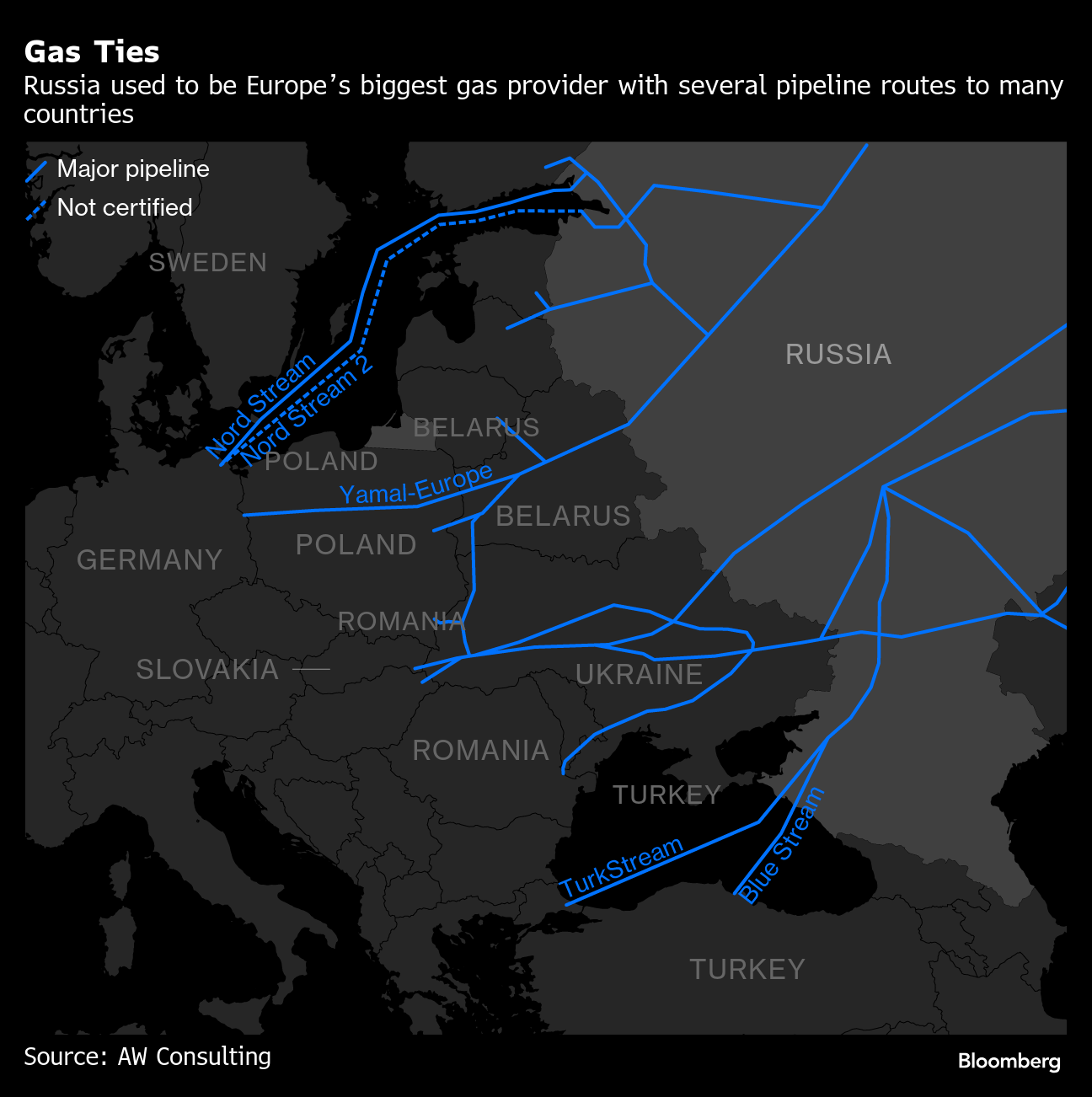EU Eyes Nord Stream 2 Sanctions to Stamp Out Russian Gas Return
(Bloomberg) -- The European Union is nearing a decision to include the Nord Stream 2 gas pipelines linking Germany and Russia in a fresh proposal of sanctions against Moscow amid persistent rumors about reviving flows that the bloc wants to stop.
The European Commission will start consulting member states as early as today on banning the links that run under the Baltic Sea and a decision will take into account recent developments in talks to end the war in Ukraine, according to people familiar with the matter who requested not to be identified because discussions are private.
Crucially, the bloc’s plan has Germany’s support. For German Chancellor Friedrich Merz, who said in Rome last week that he supports “the Commission’s proposal to start work on European measures against the Nord Stream 2 pipelines,” a key hope is that sanctions could temper debates at home about reviving the pipelines, the people said.
Rumors about a potential revival of the pipeline project have intensified this year as US President Donald Trump pushed to broker peace between Russia and Ukraine. Even without a formal ban, activating Nord Stream 2 — which was built but never certified by Germany, and was partially damaged in September 2022 explosions — was unlikely to happen anytime soon.

Sanctions would lend weight to Europe’s increasingly clear position that it doesn’t want any meaningful return of Russian pipeline flows. A ban will also protect Berlin from dealing with any potential US or Russian pressure on its own.
“It is a political move, aimed at cementing the EU’s plan to phase out Russian gas imports by 2027,” said Florence Schmit, an energy strategist at Rabobank in London. “Political clarity should also start to quell some volatility in gas markets that was related to the on-and-of discussions about Russian gas supplies.”
Natural gas prices have been closely tracking developments, even though the region has replaced most of its pipeline supplies with liquefied natural gas from elsewhere and plans to phase out Russian imports by the end of 2027. Some nations, such as Hungary and Slovakia, still depend on deliveries from Putin, and a few industrial players in the east of Germany have been hopeful that a return of Russian flows could help bring down energy costs.
As part of the push to end the war, US officials have discussed global energy projects as a possible area of collaboration with Russian counterparts in recent months. In these discussions, Russian energy giant Gazprom PJSC was keen for the US to help restart the Nord Stream pipelines, Bloomberg News reported in March. Kremlin foreign policy aide Yuri Ushakov said in May that Russia and the US have discussed supplying gas to Europe.
Still, the chances of restarting the Nord Stream 1 or 2 links were already “relatively slim,” said Tom Marzec-Manser, an independent gas analyst, given the existence of an operational route via Turkey and through Ukraine being more logical routes.

“Sanctioning the Nord Stream pipelines now is less about punishing Russia and more about insulating the EU — from its own future temptations,” said Tatiana Mitrova, researcher at the Center on Global Energy Policy at Columbia University. “It’s a preemptive strike against any political nostalgia for ‘cheap’ Russian gas.”
The commission, the EU’s executive branch, will start consultations with member states on the 18th package of sanctions this weekend. The proposal will require unanimous support from the bloc’s 27 national governments to take effect.
©2025 Bloomberg L.P.





